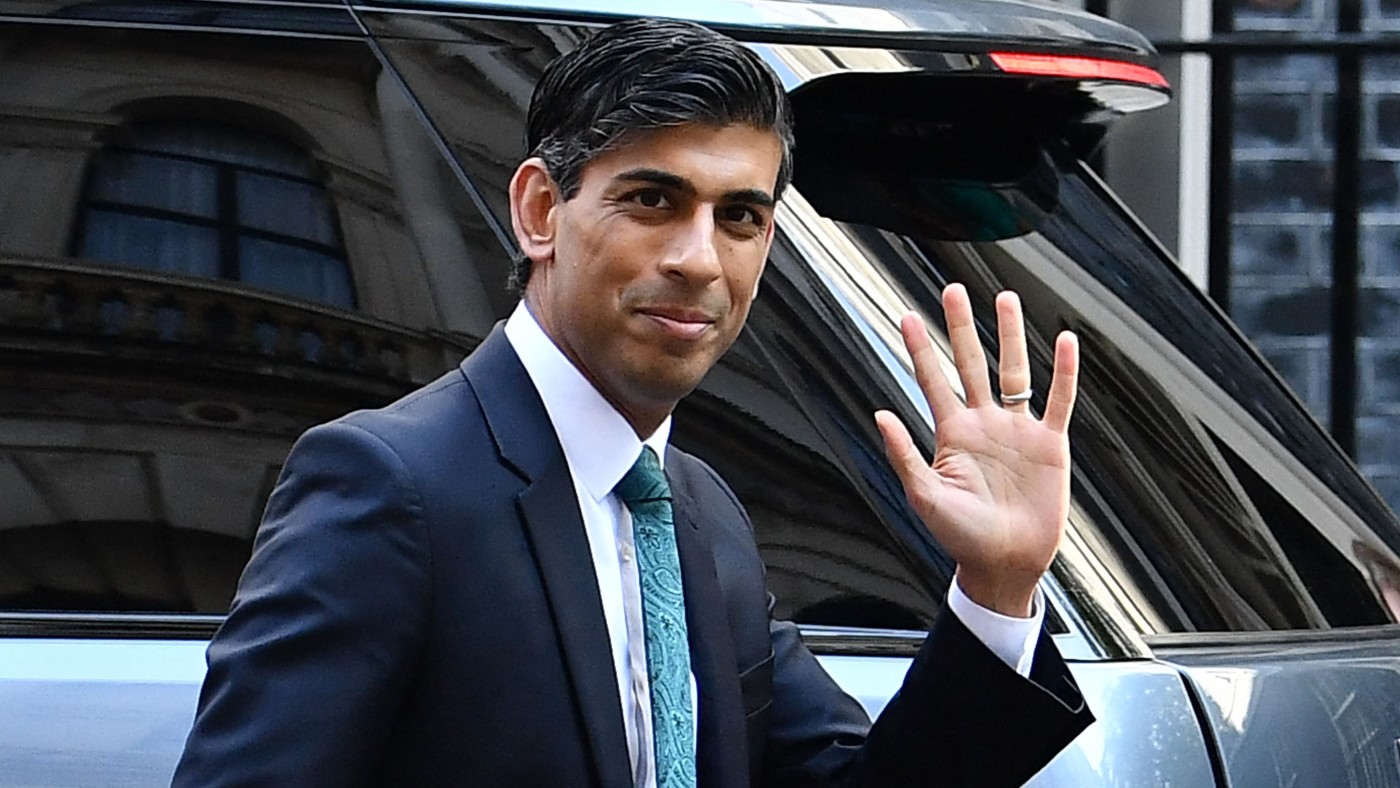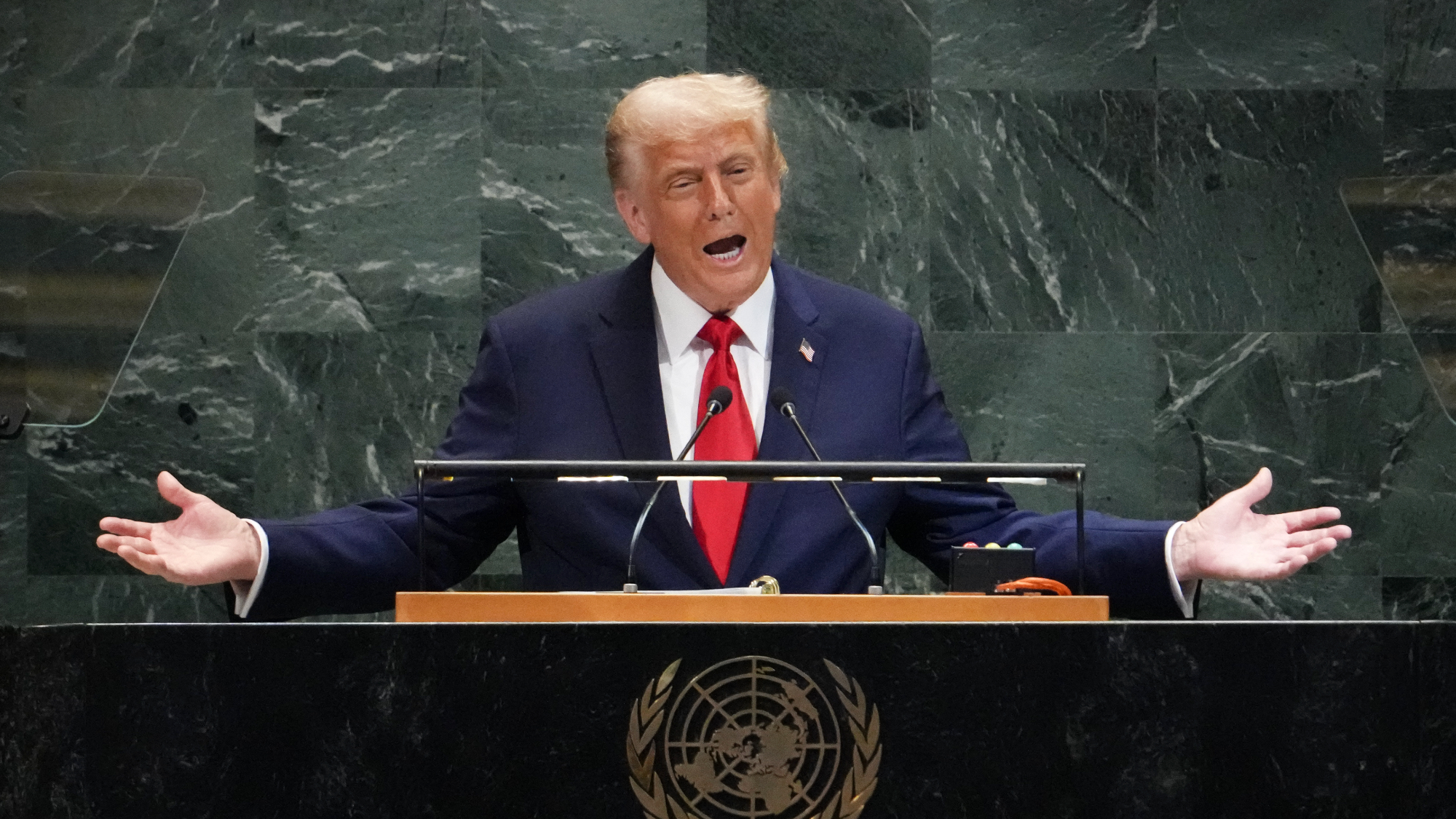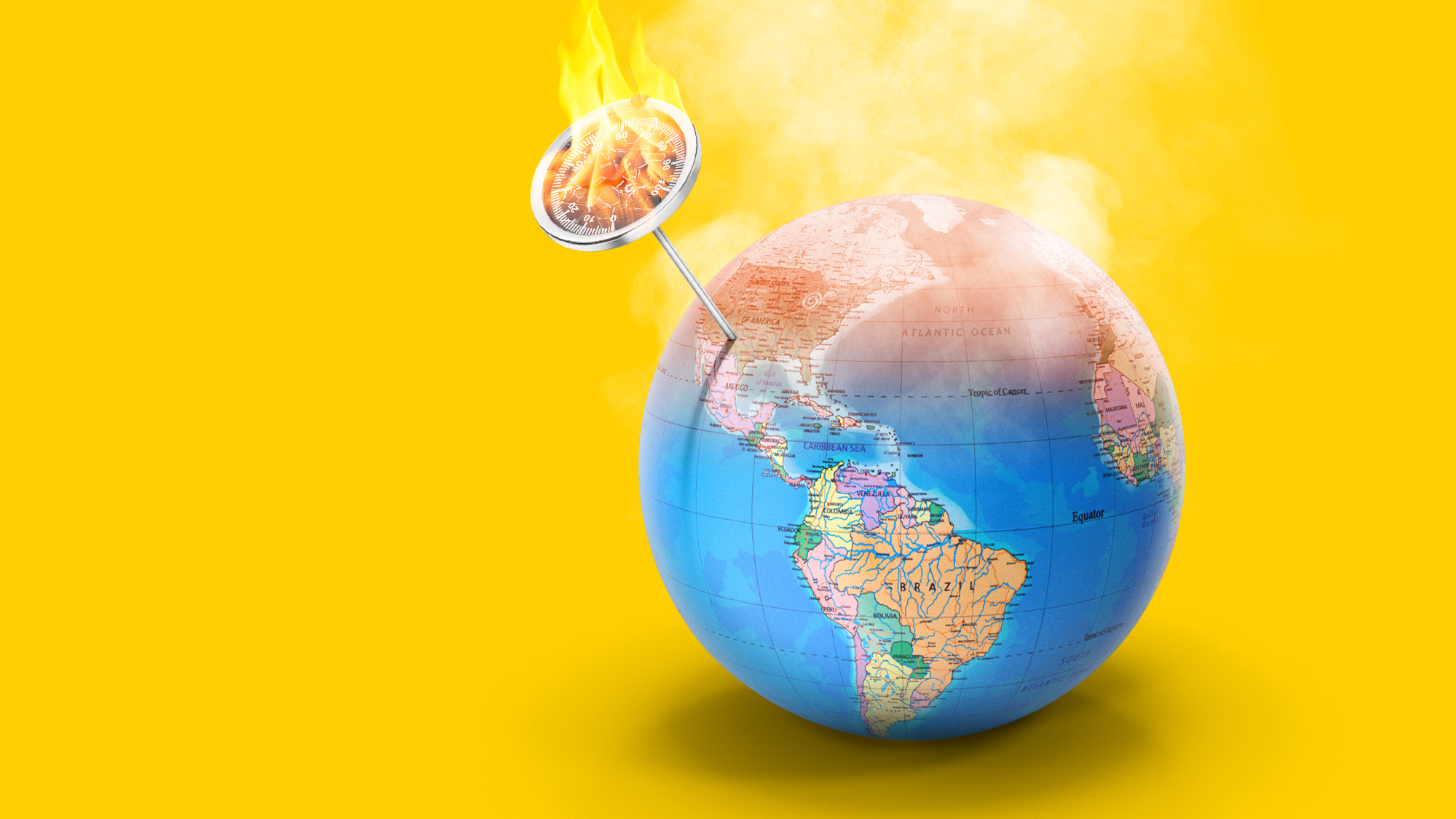Rishi Sunak’s plans to tackle climate change
New PM is reportedly considering attending Cop27 in ‘first big U-turn of his premiership’

A free daily email with the biggest news stories of the day – and the best features from TheWeek.com
You are now subscribed
Your newsletter sign-up was successful
Rishi Sunak will consider attending the Cop27 summit next month “if he has time”, according to the UK’s farming minister.
The new prime minister attracted criticism for his initial decision to reject an invitation to the gathering in Egypt “despite the UK’s role in handing over its presidency and the urgent need to combat the climate emergency”, said The Independent.
But in what would be “the first big U-turn of his premiership”, farming minister Mark Spencer said that Sunak would attend the summit, which starts on Sunday, if “he’s able to get through” his other work, the paper added.
The Week
Escape your echo chamber. Get the facts behind the news, plus analysis from multiple perspectives.

Sign up for The Week's Free Newsletters
From our morning news briefing to a weekly Good News Newsletter, get the best of The Week delivered directly to your inbox.
From our morning news briefing to a weekly Good News Newsletter, get the best of The Week delivered directly to your inbox.
Spencer told Sky News that Sunak will go “if he has the time”, adding: “He’ll make that call and I’m sure it’ll be the right one.”
The initial rejection of the summit had “angered and upset countries around the world”, said The Guardian, as well as “raising concerns over his government’s commitment to tackling the climate crisis”.
Outgoing Cop President Alok Sharma, who was recently demoted from Sunak’s Cabinet, told The Times he was “dismayed” Sunak was not planning to attend, and that it was a “missed opportunity” to show off the UK’s commitment to solving climate change.
What has Sunak said about the climate crisis?
As chancellor, Sunak took what Politico described as a “cautious approach” to green policies.
A free daily email with the biggest news stories of the day – and the best features from TheWeek.com
However, his premiership began with two significant environmental interventions. He upheld the ban on fracking, which the Financial Times said would be “welcomed by environment groups, who had accused Truss’s administration of being pro-fossil fuels”. Sunak also doubled-down on his commitment to extend the prevalence of off-shore wind farms.
He told The Telegraph in July that wind energy would be “an important part of our strategy”, but that “as prime minister, I would scrap plans to relax the ban on onshore wind in England, instead focusing on building more turbines offshore”.
At the time, Sunak said he was “committed to net zero by 2050, but that can’t mean neglecting our energy security”. His priority would be to beat the 2045 target for energy sovereignty to ensure “we’re no longer reliant on the volatility of the global energy supply”, he said.
What else does he plan to do?
The PM has long vouched for technology in the fight against environmental catastrophe. During the summer leadership contest, Sunak outlined plans to make the UK “energy independent” by “investing in vital new technologies”. He spoke of how “smart controls” in homes can help to reduce consumption.
Sunak has also pledged to re-establish the Department of Energy, which was subsumed into the Department of Business in 2016, and to create a new Energy Security Committee.
When asked during the BBC leadership debate what people could do at home to prevent climate change, Sunak replied that he takes “advice from my two young daughters, who are the experts of this in my household”.
“And what they say to me is reducing energy usage and the benefit of that is that it saves us money as well, so government should do more on that,” he continued. “The second one is recycling, and that is something we are obsessive about in my house. I know it’s a pain and you need lots of bins, but it is very good for the environment.
“And I think the third thing is that we have to focus on innovation. If we are to solve this problem, our researchers, inventors and companies need to create the solutions to the problems of the 21st century.”
Will Sunak prioritise climate change as PM?
While Sunak was criticised for not sufficiently addressing environmental issues during his bid for leadership, his proposed absence from Cop27 further undermined his green credentials. If Sunak doesn’t attend the summit it will be all the more significant considering Truss “had been expected to travel to Egypt for the conference”, reported Politico.
The BBC’s environment correspondent, Matt McGrath, said it was “unusual” that the UK would not have “a major political figure in attendance” at Cop27, especially considering “the UK government was not just the host of Cop26 but the main driving force behind its limited successes”. McGrath added that “Egyptian organisers will likely be furious at this turn of events”.
Ed Atkins, a senior lecturer specialising in environmental and energy policy at the University of Bristol, told the i news site that Sunak’s decision to keep the UK’s fracking ban, and his intention to continue the expansion of offshore wind, were positive moves.
But he also told the website that removing Sharma, who was seen as a figurehead for climate policy in successive governments, from the Cabinet was “a clear sign that climate change was not high on his list of priorities”.
In the summer leadership contest, Green Party MP Caroline Lucas said that discussion of climate change had been “conspicuous by its absence”, and that this lack of debate was “truly damning”. What “little we have heard has been disastrous”.
The New Statesman’s Luke Tryl agreed that both Truss and Sunak appeared “unwilling to embrace the most popular elements of Johnson’s agenda” including “tackling climate change”.
US climate envoy John Kerry told BBC Radio 4’s The World This Weekend that Britain needed to help meet the global net zero target date of 2050.
“I will say very pointedly and adamantly – we are behind,” Kerry said. “We do not have the luxury of jiggering with the 2050 right now.”
Richard Windsor is a freelance writer for The Week Digital. He began his journalism career writing about politics and sport while studying at the University of Southampton. He then worked across various football publications before specialising in cycling for almost nine years, covering major races including the Tour de France and interviewing some of the sport’s top riders. He led Cycling Weekly’s digital platforms as editor for seven of those years, helping to transform the publication into the UK’s largest cycling website. He now works as a freelance writer, editor and consultant.
-
 Will increasing tensions with Iran boil over into war?
Will increasing tensions with Iran boil over into war?Today’s Big Question President Donald Trump has recently been threatening the country
-
 Corruption: The spy sheikh and the president
Corruption: The spy sheikh and the presidentFeature Trump is at the center of another scandal
-
 Putin’s shadow war
Putin’s shadow warFeature The Kremlin is waging a campaign of sabotage and subversion against Ukraine’s allies in the West
-
 Trump’s EPA kills legal basis for federal climate policy
Trump’s EPA kills legal basis for federal climate policySpeed Read The government’s authority to regulate several planet-warming pollutants has been repealed
-
 How corrupt is the UK?
How corrupt is the UK?The Explainer Decline in standards ‘risks becoming a defining feature of our political culture’ as Britain falls to lowest ever score on global index
-
 The Mandelson files: Labour Svengali’s parting gift to Starmer
The Mandelson files: Labour Svengali’s parting gift to StarmerThe Explainer Texts and emails about Mandelson’s appointment as US ambassador could fuel biggest political scandal ‘for a generation’
-
 Three consequences from the Jenrick defection
Three consequences from the Jenrick defectionThe Explainer Both Kemi Badenoch and Nigel Farage may claim victory, but Jenrick’s move has ‘all-but ended the chances of any deal to unite the British right’
-
 The high street: Britain’s next political battleground?
The high street: Britain’s next political battleground?In the Spotlight Mass closure of shops and influx of organised crime are fuelling voter anger, and offer an opening for Reform UK
-
 Trump pulls US from key climate pact, other bodies
Trump pulls US from key climate pact, other bodiesSpeed Read The White House removed dozens of organizations from US participation
-
 The MAGA civil war takes center stage at the Turning Point USA conference
The MAGA civil war takes center stage at the Turning Point USA conferenceIN THE SPOTLIGHT ‘Americafest 2025’ was a who’s who of right-wing heavyweights eager to settle scores and lay claim to the future of MAGA
-
 Trump aims to take down ‘global mothership’ of climate science
Trump aims to take down ‘global mothership’ of climate scienceIN THE SPOTLIGHT By moving to dismantle Colorado’s National Center for Atmospheric Research, the White House says it is targeting ‘climate alarmism’